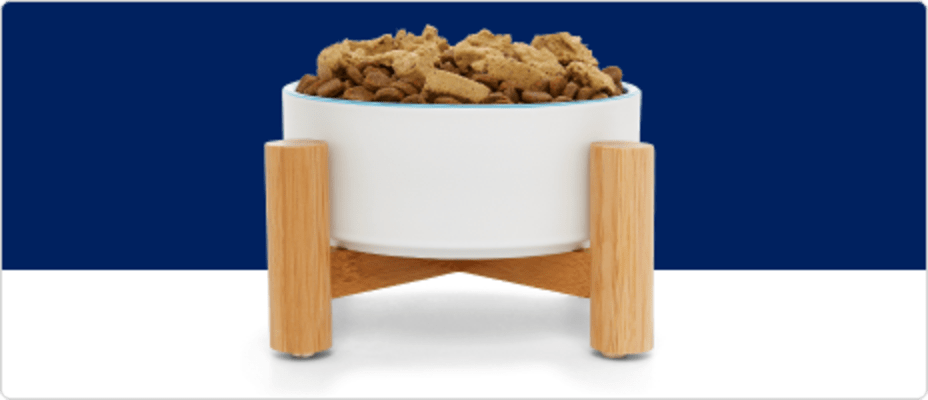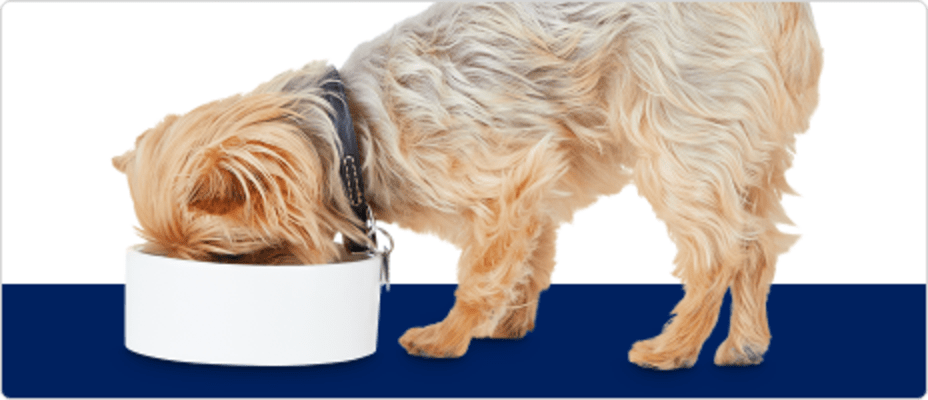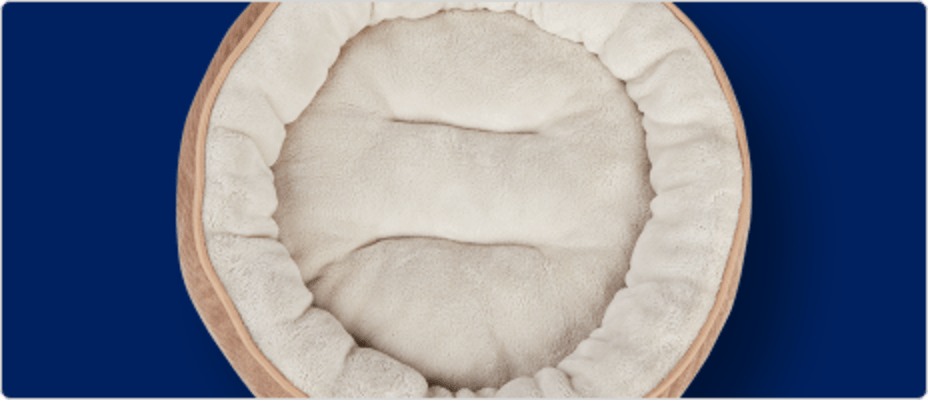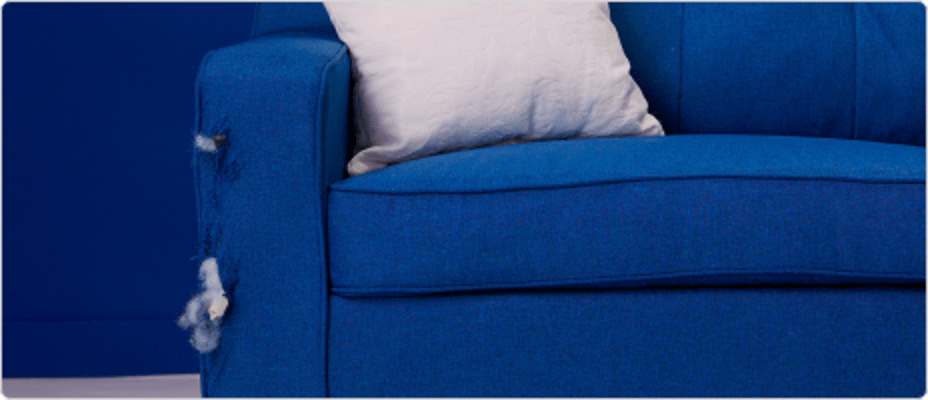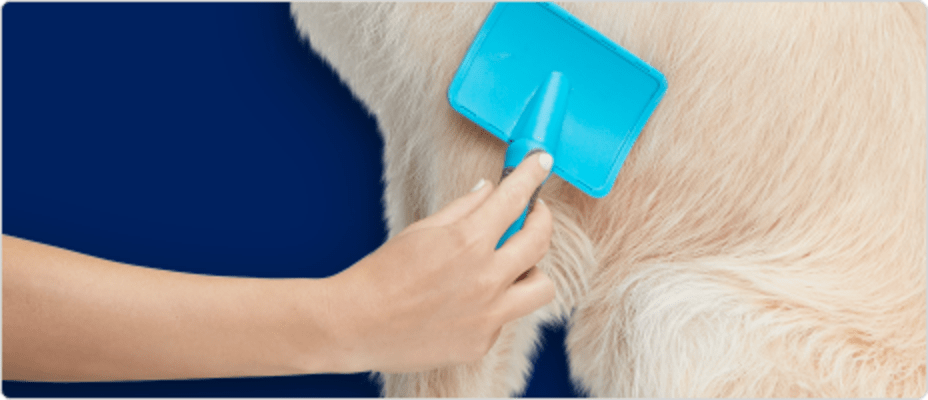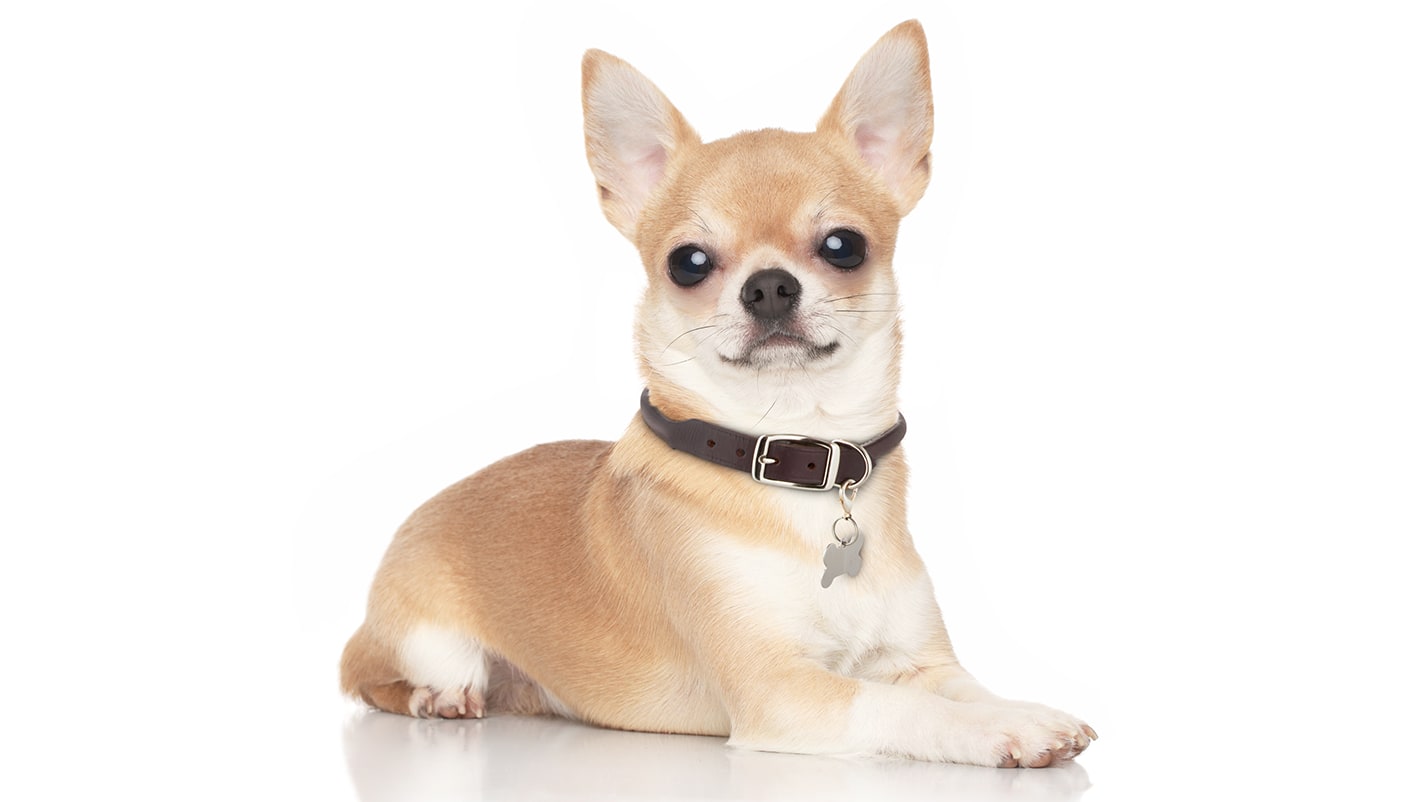
Chihuahua
The Chihuahua may be the smallest breed recognized by the American Kennel Club, but don’t tell them that. These miniature canines are known for their big personality and strong sense of self-confidence. Loyal to a fault, Chihuahuas have been known to stand up to dogs 10 times their size as well as any stranger who steps into their territory without permission.
One of the oldest breeds in America, the Chihuahua dog’s ancestors once lived among ancient South American civilizations. Today, Chihuahuas are a national symbol of Mexico and are popular across the United States. Though their tiny size may make some people ask, “Is a Chihuahua a dog?” these small but mighty canines make wonderful pets for the right type of person or family. They can also rock a sweater like nobody’s business.
Characteristics
Chihuahuas are adaptable pets who can be a great fit for a variety of homes. Their small size and moderate exercise need make them ideal for apartment living. They are also generally low maintenance when it comes to grooming, but although they won’t leave piles of fur on the furniture, they do shed seasonally. However, that doesn’t mean Chihuahuas are a low-maintenance breed. They thrive on attention and require early socialization training to be their best selves. Take a look at the Chihuahua breed info below to see how they rank across a variety of characteristics. This can help you determine if a Chihuahua dog is the right choice for you.
Height
Measured from the floor to the top of their shoulders when standing or sitting
6–10 inches
WEIGHT
Their average adult weight
4–6 lbs
LIFE EXPECTANCY
The average number of years they live
14-20 years
COLOR
Common fur colors
Black, brown, white, chocolate, red, cream, fawn, mixed
GROUP
Their AKC classification based on heritage, traits, form and function
Toy
Size
LIVING SPACE
EXERCISE
PERSONALITY
BARKING
PROTECTION
BEHAVIOR WITH KIDS
TRAINING
SHEDDING
CLIMATE
Diet and nutrition
Chihuahuas are energetic dogs who need high-quality food to support their fast metabolism. More sedentary Chihuahuas are prone to becoming overweight, so be sure to pair good nutrition with daily exercise. You can take your dog on short, slow walks. Those little legs can’t go far before tiring—though, of course, some members of the breed will prove the exception—or you can exercise your dog through playtime in the house.
The Chihuahua’s independent personality sometimes translates into being a choosy eater. If your pet has trouble finding a favorite flavor, consult your vet or talk to a Petco nutrition specialist. Remember that changing food too quickly can lead to gastrointestinal upset, and always make sure to feed your dog food that is appropriate to their life stage. Feed puppy food to puppies, adult food to adults and senior dog food to dogs 10 years old and older.
The number of calories you feed your dog will depend on their age, size and activity level. Your veterinarian can help you determine the best serving size for your Chihuahua. Consult your veterinarian about your pet’s specific nutritional needs.
Food Recommendations
- Dry Food: Hill’s Science Diet Adult Small Paws Lamb Meal and Brown Rice Recipe
- Wet Food: Royal Canine Breed Health Nutrition Chihuahua Loaf in Sauce Wet Dog Food
- Puppy Food: Blue Buffalo Blue Life Protection Formula Small Breed Puppy Chicken and Oatmeal Recipe
- Minimally Processed: The Honest Kitchen Dehydrated Whole Grain Beef Recipe Dog Food
Supplies
Give your Chihuahua what they deserve with these dog solutions from Petco.
Training
What is a Chihuahua if not a skillful charmer who knows exactly how adorable they are? For this reason, the intelligent and head-strong Chihuahua dog can be challenging to train. Patience is the key. So is getting an early start on training. Like any dog, Chihuahuas can retreat into shy or aggressive behavior if not socialized early.
A firm, positive and consistent training regimen is required to make lessons stick. Use praise and treats to reward positive behavior, and do not give in to barking or other attention-seeking habits. Stay strong. Chihuahuas love to test boundaries and aren’t beneath using their cutest puppy dog faces to get what they want.
Potty training can be the most difficult part of the training process. The Chihuahua dog breed is known for sneaking off to some forgotten corner of the home instead of going outside or using indoor potty pads. Stay on top of potty breaks by making an effort to take them out frequently until they become more comfortable with the routine. Puppies need to be taken out frequently for potty breaks—after they play, when they awake from a nap, after they’ve have a meal and a drink of water, etc. As they age, you should be able to make it a few hours between potty breaks, but keep in mind that they have small bladders inside those tiny bodies.
Puppy pads, dog litter boxes, crates and odor remover are all useful tools during the house-training process. You can create a custom curriculum at your neighborhood Petco training center by enrolling in private lessons, group classes or even online classes with our most expert certified trainers.
Common health problems
How long do Chihuahuas live? Up to 20 years, although 14 to 18 years is more common. That’s because these dogs tend to be healthy, although, like any breed, they are susceptible to certain health issues. Perhaps the biggest risk Chihuahua dogs face has nothing to do with an illness or genetic condition. Instead, everyday injuries can be highly damaging to these small, delicate dogs. A Chihuahua’s bones are fragile and can break easily if your pet falls off a couch, gets into a fight with a larger dog or is handled too roughly. Pet parents should always be vigilant, especially because Chihuahuas are often the least aware of their own vulnerabilities.
Other common health issues for the Chihuahua dog breed include heart disease, patellar luxation, hypoglycemia, seizures, hydrocephalus, tracheal collape, glaucoma and hip dysplasia. Chihuahuas are also somewhat notorious for poor dental health. Pet parents can help ward off gum disease, bad breath, cavities and tooth extractions by making dental health a priority.
-
Joint pain
Senior dogs with joint pain may benefit from these Well & Good chewable tablets that can help support cartilage tissue and joints. Consult your veterinarian for prescription-strength pain control when needed.
-
Dry eye and eye infections
If your dog suffers from dry eye or certain inflammatory eye conditions, a prescription from the Petco pharmacy may help, as can artificial tears and over-the-counter eye lubricants. Consult your vet for a recommendation.
-
Heart health
Wild Alaskan salmon oil is a dog food supplement that contains omega-3 fatty acids. This may help support overall cardiovascular health while also improving your dog’s coat. Heart murmurs are very common in older Chihuahuas, so ensure your pet is having a veterinary exam at least once a year.
-
Anxiety
A calming aid that contains chamomile, ginger and passionflower may help relieve feelings of anxiety.
-
Dental Health
Every dog should have a daily dental routine. This Well & Good finger toothbrush is great for helping to maintain good dental health in small dogs. Dental chews and treats are a tasty way to help fight plaque and tartar in between dental visits at the vet.
Grooming your Chihuahua
Grooming and health go hand in hand, so it’s important to implement a consistent grooming routine with your Chihuahua after adoption. Chihuahuas don’t require a particularly high level of grooming, but they do shed, and their nails tend to grow very fast since they are mainly house or “purse” dwellers, but that doesn’t mean you should ignore your dog’s grooming needs.
There are two coat varieties for Chihuahuas, smooth coat and long-haired.
-
Brushing
Most media depictions of Chihuahua dogs feature short-haired dogs, but long-haired Chihuahuas also exist. Long-haired Chihuahuas need brushing about three times a week to keep out tangles, reduce matting and remove loose undercoat. Even short-haired varieties shed, however, so regular brushing is needed to maintain their healthy skin and coat.
-
Bathing
Short-haired Chihuahuas who stay inside may only need one bath a month to keep their skin and coat fresh and clean. Chihuahuas with longer fur and those who spend more time outside will need more regular bathing—every two weeks may be required for these guys. Be sure to use dog-specific shampoo. You may also want to use tear-free shampoo, as it can sometimes be difficult to avoid those huge, beautiful Chihuahua eyes.
-
Nail trimming
Indoor dogs need more regular nail trims than dogs who spend a lot of time outdoors and naturally wear down their nails during walks and play. Plan to trim your Chihuahua’s nails at least once every two weeks. If your little dog is anxious, you may need to spend some time training them to get used to nail clippers or nail grinders. Start playing with their toes and nails from the start and get them used to hearing your nail grinder. You may need to start with just one nail or paw a day and lots of praise and treats.
-
Toothbrushes
The Chihuahua dog breed often deals with a range of dental issues, including weak tooth enamel, cavities and gum disease. For small-breed dogs, a finger toothbrush is a great option. Most veterinarians recommend brushing their teeth at least twice a week.
-
Dental treats
Dental treats can help support good dental health in Chihuahuas in between dental appointments with the vet. Treats can help remove tartar and prevent plaque buildup, which could eventually cause tooth decay and gum disease. Make sure to buy dental treats that are sized appropriately for small dogs. And remember, dental treats are still treats and should be counted toward your dog’s daily treat calorie budget of no more than 10 percent of their total daily calories.
-
Professional grooming
While short-haired Chihuahuas might not need the same level of bathing and brushing as their long-haired counterparts, that doesn’t mean they can’t benefit from professional grooming. If you have trouble trimming your dog’s nails or brushing their teeth, a professional groomer can provide these services for you. Petco offers grooming packages as well as a la carte services from friendly and highly experienced groomers.
Adopting a Chihuahua
Thinking of adopting a Chihuahua? Originally bred as a companion animal, the Chihuahua dog breed often shows fierce loyalty and devotion to their humans. They enjoy spending lots of time with their pet parents and can even become tiny shadows, prancing behind their human from room to room. For this reason, they do best in households where their pet parents can shower them with attention.
The breed can be anxious, and they prefer calm environments. Older dogs and good-natured pets can make good housemates for Chihuahuas. One important thing to note is that Chihuahuas don’t always do well with young children. Their snippy nature can create tension, and overexcited children can unintentionally injure these delicate dogs, or they themselves can be injured.
The Chihuahua’s size can be a big benefit for certain households. This isn’t a dog who needs a large yard or lots of room to run. In fact, they can be perfect apartment dogs. Many pet parents enjoy taking these “purse dogs” with them to dog-friendly restaurants, parks and other venues.
Before adopting this breed, it’s also important to acknowledge the long Chihuahua life span. If you adopt a puppy, your pet could be with you for 14 years or more. Some Chihuahua dogs have even hit their 20th birthday.
When searching for a Chihuahua to adopt, you have several options. Many Chihuahua rescue organizations will vaccinate and spay or neuter the dogs in their care before sending them to their permanent homes, as will many local animal shelters. If you choose not to adopt, Chihuahua breeders are an option. Do your homework on any breeder you’re considering, and make sure they’ve performed genetic testing on their breeding dogs to lower the risk of common genetic conditions.
FAQs about Chihuahuas
Have questions about Chihuahuas, like, “How long do Chihuahuas live?” The answer to that is up to 20 years, although 14 to 18 years is more common. Keep reading for more Chihuahua information.
The famous Chihuahua temper is, at heart, a symptom of their loyalty and protectiveness toward their pet parents and their home. Chihuahuas who have not been properly socialized often see other animals, children and strangers as threats and act accordingly. Additionally, Chihuahua dogs who are left alone and not socialized may resort to aggressive behavior out of boredom, loneliness or anxiety.
Finally, in a Chihuahua’s mind, they are the biggest and baddest dog in the room. This self-assessment gives them the confidence to confront any animal or human they perceive to be encroaching on their territory.
This doesn’t mean that all Chihuahuas are fated to be aggressive and poorly mannered. Instead, it means that pet parents must work early and consistently to promote positive behaviors. It is very important to socialize Chihuahuas as early as possible and to help them learn that other pets and people aren’t threats. Reward them for staying calm, and don’t respond when they seek attention in inappropriate ways. It may be a good idea to seek professional training for your dog. Chihuahuas can be stubborn, but they are also very smart and can take well to training as long as their pet parents consistently apply all established rules.
Petco offers a variety of training packages, including group training sessions, individual training sessions and online training sessions.
A Chihuahua can be an excellent companion for pet parents who understand and support the unique needs of this tiny dog with a huge personality. Chihuahuas are readily adaptable and can be just as happy in cozy apartments as they are in spacious mansions. Their small size and moderate exercise needs make them ideal for city-dwelling pet parents. They can also appreciate most seasons, although a dog jacket or sweater is a good idea when taking your Chihuahua out in colder climates.
Chihuahuas have long been known as “purse dogs,” but another way of looking at this is that these compact dogs are easy to transport. They are extremely loyal and often love nothing more than snuggling up with their pet parent on the couch or accompanying them to a dog-friendly café.
Of course, like any pet, Chihuahuas require certain accommodations. They expect—and sometimes demand—a lot of love and attention. This isn’t a dog who will play well by themselves, and their high level of loyalty can sometimes lead to unwanted behaviors. Without the proper training and socialization, they may have trouble getting along with other pets in the home or with anyone they perceive as a stranger.
One of the best ways to help your Chihuahua live their best life is to socialize and train them early. With the right socialization, Chihuahua dogs can learn to enjoy their fellow animal housemates and even befriend new humans.
By adopting a Chihuahua, you are gaining a loving companion who will keep you endlessly entertained with their proud bearing and big ego. They’ll also melt your heart and look unbearably cute in whatever outfit you choose for them.
Lapdogs, like Chihuahuas, often get an unfair reputation for being…shall we say, on a lower rung of the intelligence ladder than many other dog breeds. However, Chihuahua pet parents know better. These dogs are sassy, cunning and much smarter than they are often given credit for.
The assumption that Chihuahuas aren’t intelligent may come from the fact that they don’t take to training as easily as certain other breeds. When compared to how quickly Border Collies, German Shepherds and Labrador Retrievers can learn and successfully follow cues, Chihuahuas can seem a little behind the curve. However, it’s important to keep in mind that these larger breeds were bred to be working dogs. It is in their genes to learn and follow orders.
Chihuahuas, on the other hand, were bred to be companion dogs. They weren’t exactly herding sheep in their early days. But just because your pet might not be at the top of their class when it comes to training doesn’t mean Chihuahuas aren’t smart. (And, for the record, they can excel at training and learn a variety of cues and tricks.)
Chihuahua dogs possess a high amount of “street smarts.” They know how to manipulate those around them to get what they want, and their fierce confidence can make them the alpha of a home with dogs 10 times their size.
Note that if you give some Chihuahuas an inch, they’ll try to take a mile. This is especially true when it comes to house-training. It’s not that a Chihuahua can’t be housetrained. It’s that some prefer to take the easy way out and do their business in the corner if you don’t stand firm on the rules.
So, put aside any worries that your Chihuahua isn’t as bright as the other pups at the dog park. The Chihuahua dog breed has their own type of smarts and absolutely knows how to use their intelligence to their full advantage.
- Chihuahua Clothes
- Chihuahua Dog Beds
- Tiny Chihuahua Harness
- Dog Leash For Chihuahua
- Food For Chihuahua Terrier Mix
- Small Breed Dog Food
- Costumes For Chihuahuas
- Christmas Gifts For Chihuahuas
- Small Breed Puppy Food
- Japanese Chin Dog Food
- Border Collie Care
- Small Breed Salmon Dog Food
- Shih Tzu Puppies Care
- Dachshund Dog Clothes
- Mini Dachshund Pet Supplies
- Small Puppy Care
- Australian Shepherd Dog Beds
- Shetland Sheepdog Dog Food
- Pembroke Welsh Corgi Dog Bed
- Large Breed Dog Food
- Canidae Small Breed Dog Food
- Royal Canin Small Breed Dog Food
- Tiki Small Breed Dog Food
- Nutro Small Breed Dog Food
- Eukanuba Small Breed Dog Food
- Pedigree Small Breed Dog Food
- Nulo Small Breed Dog Food
- Natural Balance Small Breed Dog Food
- Caldera Dog Health & Wellness
- Purina Dog Chow Dog Food
- Brown's Chinchilla Shop
- Blue Buffalo Small Breed Dog Food
- Purina Dog Chow
- Royal Canin Large Breed Dog Food
- Royal Canin Dry Dog Food
- Stella & Chewy's Small Breed Dog Food
- Merrick Small Breed Dog Food
- Purina Dog Chow Dry Dog Food
- Hill's Small Breed Dog Food
- Purina Pro Plan Small Breed Dog Food


